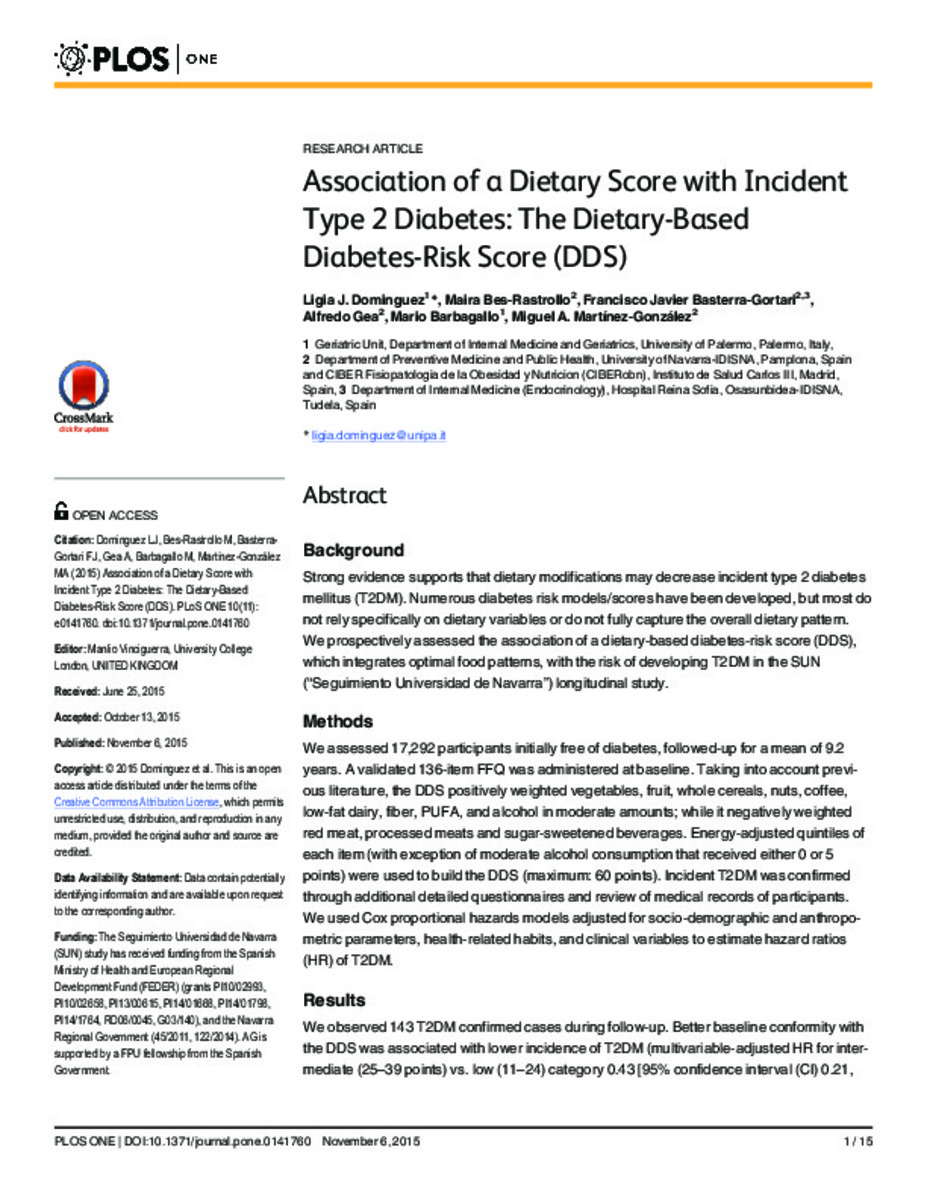Association of a dietary score with incident type 2 Diabetes: the dietary-based diabetes-risk score (DDS)
Palabras clave :
Dietary modifications
Type 2 diabetes mellitus
Chronic disease
Mortality
Fecha de publicación :
2015
Editorial :
Public Library of Science
Cita:
Dominguez LJ, Bes-Rastrollo M, Basterra-Gortari FJ, Gea A, Barbagallo M, Martínez-González MA. Association of a dietary score with incident type 2 Diabetes: the dietary-based diabetes-risk score (DDS). PLoS One. 2015 Nov;10(11):e0141760
Aparece en las colecciones:
Estadísticas e impacto
0 citas en

0 citas en

Los ítems de Dadun están protegidos por copyright, con todos los derechos reservados, a menos que se indique lo contrario.








